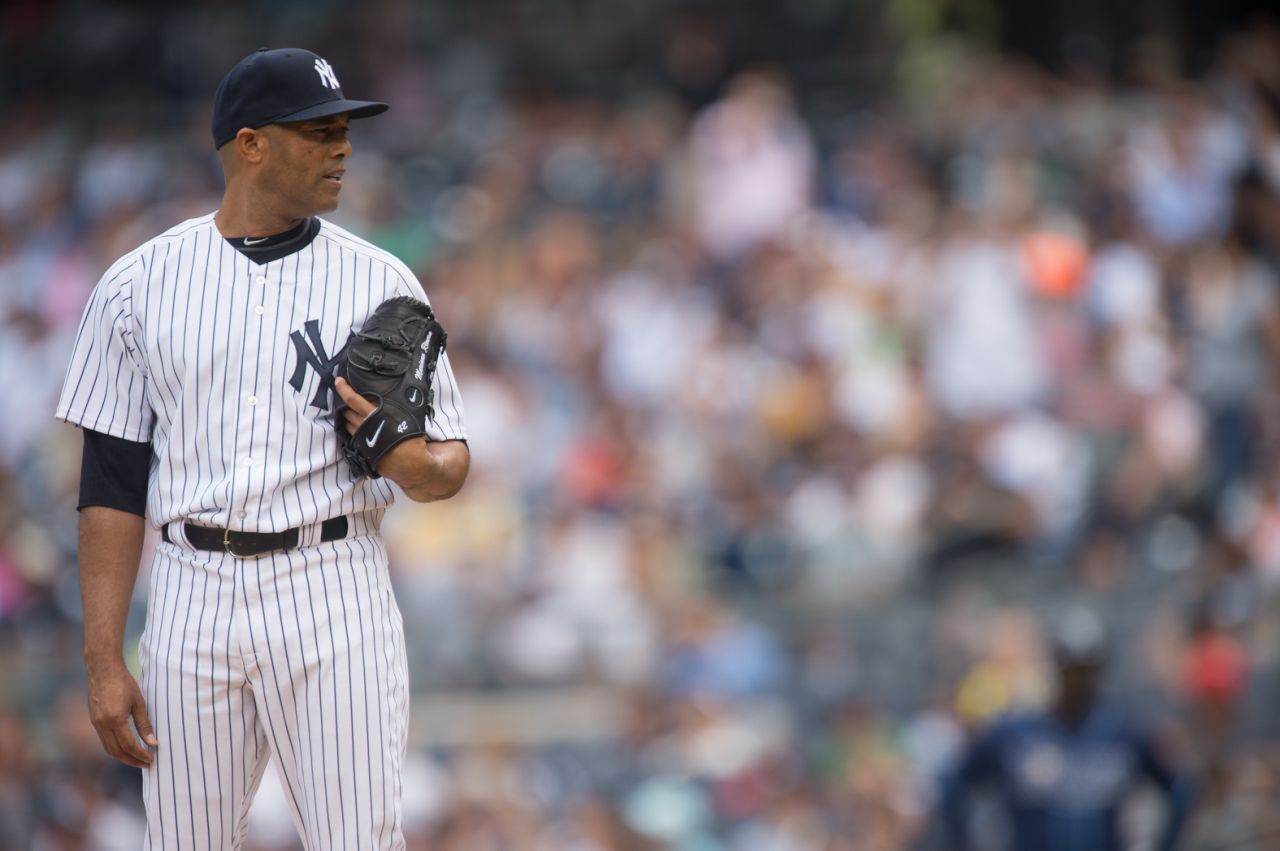The visiting team’s locker room in Clearwater, Florida, was a small, cinder block structure. Inside, from memory, it was dark, with narrow head-high windows, a low bench for sitting and the occasional hook for clothes, meant for getting undressed and re-dressed and that was about all.
One afternoon about 20 years ago the New York Yankees played a spring game at Jack Russell Stadium. Late in the day a pitcher named Ramiro Mendoza, a young man from Panama wearing a T-shirt and boxer shorts, stood in that locker room and in his second language sought to describe to a dozen reporters his inning or two of work.
Mendoza had big brown eyes, sloped shoulders and a hard sinker that had earned him the nickname, “El Brujo”: the witch doctor. Naturally quiet, his English was rehearsed and laudable but spotty. Rapid or nuanced questions eluded not his intelligence but his ability to express himself, and he would lift his gaze and smile and, at times, wait for help. The group had reached one of those points of confusion, of sympathy for Mendoza who was trying so hard, of choosing a polite and respectful way out, when a voice came from the right.
Softly, calmly, “What do you need, fellas?”
For the next 15 minutes, Mariano Rivera, also in his underwear, fielded questions in English, turned them into Spanish for Mendoza, then turned Mendoza’s words back into English. He’d rested a hand on his fellow Panamanian’s shoulder, assisting not with impatience but with grace. With kindness. Now and then, everybody could use a friend. It was Mendoza’s turn, for as long as he needed one.
That’s the Rivera I remember. That’s the story I tell when people ask what it was like to cover him, or what kind of guy he really is, or if his button-up reputation isn’t just a little too taut. Just that tiny, mostly forgotten gesture. Those are the ones you trust.
What do you need?
The drama in Mariano Rivera’s initial eligibility for election into baseball’s Hall of Fame was not if but by how much. On Tuesday afternoon it was said: by plenty. He received 425 of 425 votes, the first to be unanimously selected in 75 years of balloting. So, 27 years after Rod Carew drew 90.5 percent of the BBWAA votes in his first year on the ballot, Rivera became the second player from Panama to be elected to the Hall. As with Carew, a generation of aspiring ballplayers from a country of four million people had a dream, a destination and, if they needed one, a hero.
The son of a fisherman in Puerto Caimito, a small coastal town halfway between Costa Rica and Colombia, Rivera signed with the New York Yankees four years after Carew retired. He became a full-time reliever five years after Carew was inducted into Cooperstown. The journey from second or third mate on your daddy’s boat in Puerto Caimito to the big leagues is nearly inconceivable. Now add nearly 700 saves, regular and postseasons. Add the dignity with which he conducted himself. And the team for which he pitched, in that city. And the parades. And Hall of Fame inevitability.
Still, when considering Rivera and the largeness of his baseball career, the inclination is to stay small. The simplicity with which he won. The dignity in defeat. The joy in celebrations, tears when it was over, and the sight of him standing in center field with a young pitcher and revealing the grip on his cutter. All of it layered and inseparable, like the grains of the bats he routinely destroyed.
He knew they were watching, the people were, that he could be their example.
“I hope the people of Panama are celebrating like we are here,” Rivera said Tuesday evening. “This belongs to Panama.”
To people such as Ramiro Mendoza. To the adults who raised him, or helped. To the kids on those dirt lots and beaches who brought his earliest competition, and to those who have taken their places. To, perhaps, Jaime Barria, a 22-year-old right-hander with 129 ? big-league innings behind him with the Los Angeles Angels.
Source: Tim Brown at Yahoo Sports
